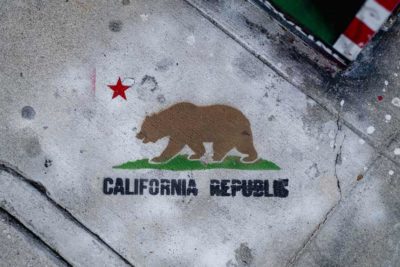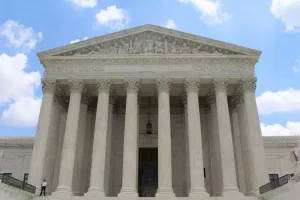
- Originally Published on May 1, 2025
California Defamation Law Guide – Libel and Slander
When false statements damage your reputation, the emotional toll can be devastating. You may feel angry, betrayed, and powerless as you watch your personal and professional standing suffer from someone else’s malicious words.
These feelings are entirely valid; defamation strikes at the core of your identity and can impact every aspect of your life, from relationships to career opportunities. While the damage may feel overwhelming, California law provides specific remedies to help you fight back and restore your good name.
Under California law, defamation is defined as the publishing of a false statement to a third party that results in harm to another person’s reputation and good standing. To prevail in a defamation claim, plaintiffs must prove five elements: (1) an intentional publication of a statement of fact, (2) that is false, (3) that is unprivileged, (4) that has a natural tendency to injure or causes “special damage,” and (5) the defendant’s fault in publishing the statement amounted to at least negligence. California distinguishes between written defamation (libel) and spoken defamation (slander), with different standards applying to each form and additional protections for speech on matters of public concern.
What is Defamation Under California Law?
Defamation in California refers to false statements that harm a person’s reputation by exposing them to “hatred, contempt, ridicule or obloquy, or which causes him to be shunned or avoided, or which has a tendency to injure him in his occupation,” as defined in Mattel, Inc. v. Luce.
The state recognizes two forms of defamation:
- Libel: Written or published false statements that damage someone’s reputation
- Slander: Spoken false statements that harm another person’s reputation
According to California Civil Code §46, slander is specifically defined as “a false and unprivileged publication, orally uttered,” that does one or more of the following:
- Charges you with a crime
- Imputes in you the existence of an infectious, contagious, or loathsome disease
- Tends directly to injure you in respect to your office, profession, trade or business
- Imputes to you impotence or a want of chastity
- Which, by natural consequence, causes damage
For a statement to be considered defamatory under California law, it must be objectively untrue and unsubstantiated. Statements that are substantially true, with only minor inaccuracies, are not considered defamatory. Similarly, statements of opinion that cannot be proven true or false are not actionable as defamation, unless the opinion is based on defamatory facts.
What is Defamation Per Se in California?
California recognizes an unusually broad range of statements as defamation per se, statements so inherently damaging that harm is presumed without requiring proof of actual damages. While most states recognize only four categories, California identifies nine types of statements that qualify as defamation per se, making it easier for plaintiffs to pursue claims without proving specific damages.
Unlike most states that recognize only four categories of defamation per se, California recognizes nine categories of statements that are considered so inherently harmful that damages are presumed:
- Statements charging a plaintiff with a crime (or having been indicted, convicted, or punished for a crime)
- Statements that label a plaintiff “communist”
- Statements that a plaintiff has an infectious, contagious, or loathsome disease
- Statements that subject a person to public hatred, ridicule, or contempt
- Statements that a plaintiff is impotent or unchaste
- Statements that injure a plaintiff in their office, profession, trade, or business
- Statements charging a plaintiff with a violation of the confidence reposed in them
- Statements that tend to cause a person to be avoided or shunned
- Statements charging a plaintiff with treachery against their associates
What is Defamation Per Quod in California?
In contrast to defamation per se, defamation per quod refers to statements that are not inherently defamatory but become so due to external facts or context. For these claims, plaintiffs must prove actual damages as a result of the alleged defamatory statement, typically through the production of extrinsic evidence.
What Are Elements of a Defamation Claim in California?
To succeed in a California defamation lawsuit, plaintiffs must prove five essential elements. Each element must be established with sufficient evidence for a claim to move forward, and failure to prove any single element can result in dismissal of the case.
Intentional Publication of a Statement of Fact
The statement must be intentionally communicated to a third party who understands both the defamatory meaning of the statement and its application to the plaintiff. Since California law treats defamation as an intentional tort, a defendant must have intended the specific publication.
In general, if a defendant states an opinion as opposed to a fact, then there is no defamation. However, a statement of opinion may still constitute defamation if it is based on defamatory facts. The determination of whether a statement expresses fact or opinion is a question of law for the trial court, unless “the statement is susceptible of both an innocent and a libelous meaning, in which case the jury must decide how the statement was understood.”
California courts require plaintiffs to plead the “exact words” of the defamatory statement in their complaint, a special pleading standard not required in all states.
False Statement
The statement in question must be objectively untrue. If the person who made the alleged defamatory statement was telling the truth, it is an absolute defense to an action for defamation.
In cases involving public figures or matters of public concern, the burden is on the plaintiff to prove falsity. In cases involving matters of purely private concern, the burden of proving the truth is on the defendant.
A defendant does not have to show the literal truth of every word in an alleged defamatory statement. It is sufficient if the defendant proves true the substance of the charge.
Unprivileged Publication
A statement must be unprivileged to be actionable as defamation. A statement is unprivileged if the defendant did not have the right to make it. A showing of privileged communication is a defense against a defamation lawsuit.
Journalists, for example, have qualified privilege to write about and discuss public-interest matters. If they get the facts wrong, they should not be held liable unless they acted with actual malice.
Also considered privileged are communications made by an individual, without malice, regarding an incident of sexual assault, harassment, or discrimination.
Natural Tendency to Injure or Cause “Special Damage”
The plaintiff must show that the publication caused injury or “special damages.” Cases fall into one of two categories:
- Defamation “per se”: Where the publication is considered so damaging that the plaintiff is entitled to sue without having to prove actual damages. Most “per se” cases occur when someone falsely accuses another person of having committed a crime or being unfit to practice their trade, business, or profession.
- Defamation “per quod”: Where the publication is not defamatory on its face and requires allegations and proof of special damages. Defamation per quod cases require the use of extrinsic evidence or explanatory information to show the libel or slander.
Defendant’s Fault Amounted to at Least Negligence
The level of fault required depends on the plaintiff’s status and the nature of the issue:
- For private individuals on matters of private concern: negligence standard (the defendant failed to use reasonable care in determining whether the statement was true)
- For public figures or matters of public concern: actual malice standard (knowledge of falsity or reckless disregard for the truth)
California law also requires that “limited-purpose” public figures prove malice to prevail in a defamation claim. A limited-purpose public figure is someone who voluntarily injects themselves or is drawn into a particular public controversy.
What Are the Standards For Private vs. Public Figures in California?
California law applies different standards of proof in defamation cases depending on whether the plaintiff is a private individual or a public figure. This distinction is crucial because it directly affects how difficult it will be to win your case.
Private Figures
Private individuals in California have greater protection under defamation law. When the matter involves a private concern, private plaintiffs must prove:
- The defendant communicated a false statement with ordinary negligence
- The statement caused actual damage to the plaintiff’s reputation
However, if the matter involves public concern, even private figures must prove actual malice or show actual damages.
Public Figures
Public figures face a higher burden of proof in defamation cases. California recognizes several categories of public figures:
- Public Officials: Government employees who appear to the public in the arena of government affairs
- All-Purpose Public Figures: Individuals in “positions of pervasive power and influence” who invite attention and comment on all matters
- Limited-Purpose Public Figures: Persons who “thrust themselves to the forefront of particular controversies in order to influence the issues involved”
Public figures and officials must prove the defendant acted with actual malice when publishing the defamatory statement, meaning the defendant knew the statement was false or acted with reckless disregard for its truth.
What Are Common Defenses to Defamation in California?
The most common defenses to defamation in California include truth, opinion, privilege, consent, Anti-SLAPP protection, and statute of limitations. Truth is an absolute defense—if the statement is substantially true, there is no defamation. Opinions are generally protected unless based on false facts, and privileged communications (like those in judicial proceedings) are immune from defamation claims.
Truth
Because falsity is a key element of defamation, truth is an absolute defense. If a defendant can establish that their statement was at least substantially true, they may prevail in the case. A defendant does not have to show the literal truth of every word in an alleged defamatory statement; it is sufficient if they prove true the substance of the charge.
Opinion
If a statement cannot be proven as either true or false, it may be considered an opinion rather than a statement of fact. Opinions are generally protected from defamation claims, though statements containing both fact and opinion may still be actionable if the factual components are false.
Consent
If the plaintiff consented to the publication of the statement in question, they will likely not succeed in a defamation lawsuit. Consent can take various forms, including express, informed, implied, or unanimous consent.
Privilege
Certain communications are protected by privilege, even if they contain defamatory content:
Absolute Privilege
In California, absolute privilege applies to statements made in:
- Legislative proceedings
- Judicial proceedings
- By public officials in the course of their duties
Absolute privilege provides complete immunity from defamation claims, even if the statements were made with actual malice.
Qualified Privilege
Communications made in good faith between parties with a common interest or duty are protected by qualified privilege. This includes:
- Journalists reporting on matters of public interest
- Employers providing references for former employees
- Communications between people with a common interest in the subject matter
- Communications made without malice regarding incidents of sexual assault, harassment, or discrimination
Unlike absolute privilege, qualified privilege can be defeated if the plaintiff proves the defendant acted with actual malice.
Anti-SLAPP Protection
California has strong Anti-SLAPP (Strategic Lawsuits Against Public Participation) laws that protect defendants from frivolous defamation lawsuits designed to intimidate or censor them. To prevail on an Anti-SLAPP defense, a California court must find:
- The defendant was acting in furtherance of their right of petition or free speech in connection with a public issue
- The plaintiff failed to show any probability that they would prevail on their defamation claim
If successful, an Anti-SLAPP motion can lead to early dismissal of the case and an award of attorney’s fees to the defendant.
What Damages Can Be Recovered for Defamation in California?
California defamation victims can recover three main types of damages: general damages for reputation loss and emotional distress, special damages for specific financial losses, and punitive damages in cases of malicious conduct. For defamation per se, damages are presumed without proof of actual injury, while defamation per quod requires evidence of specific harm.
General Damages
General damages compensate for the loss of reputation, shame, mortification, and hurt feelings resulting from the defamatory statement. In cases of defamation per se, these damages are presumed without requiring proof of actual injury.
Special Damages
Special damages compensate for specific financial losses related to property, trade, profession, or occupation. For defamation per quod, plaintiffs must prove these actual injuries to succeed on their claim.
Punitive Damages
In cases involving particularly egregious conduct, California allows for punitive damages to punish the defendant. These are awarded at the discretion of the court or jury to punish the defendant and deter similar conduct in the future. To recover punitive damages, the plaintiff must prove by clear and convincing evidence that the defendant acted with oppression, fraud, or malice.
What is the Statute of Limitations in California For Defamation Lawsuits?
In California, defamation plaintiffs have one year to file a lawsuit after libel or slander takes place. The statute of limitations “clock” begins as soon as the defamatory statement is spoken or published, not when it is discovered by the plaintiff.
What Should You Be Aware Of When It Comes to the Statute of Limitations in California?
The defamation statute of limitations can be challenging when a defamatory statement is published more than once. For instance, what if John Doe publishes a defamatory statement about you on Twitter in March, but you only find out about the statement when it is re-tweeted by another individual in July? The answer, in California, can be tricky.
Generally, the statute of limitations begins the first time a defamatory statement is published. In the example above, that would mean the statute of limitations began in March, not July. California courts have employed this rule in the past, stating that “the cause of action will accrue upon the first general distribution of website publications to the public.” Traditional Cat Ass’n, Inc. v. Gilbreath.
But, “changes to defamatory material on a website may begin a new limitations period.” LegacyQuest v. Rosen. So, based on the example above, John Doe could potentially restart the statute of limitations if he later edits his tweet.
Frequently Asked Questions About California Defamation Law
Can You Press Charges Against Someone for Making False Accusations in California?
No, you cannot press criminal charges for defamation in California, as it is not a criminal offense in this state (unlike in 23 other states). However, you can file a civil lawsuit seeking monetary damages and other remedies for the harm caused to your reputation by false statements.
How Difficult is it to Win a Defamation Lawsuit in California?
Winning a defamation lawsuit in California can be challenging due to the short one-year statute of limitations and the need to prove all five elements. The difficulty increases if you’re considered a public figure or if the statement involves a matter of public concern, as you’ll need to prove actual malice. Additionally, California’s strong Anti-SLAPP laws provide robust protection for defendants, making it important to have a solid case before filing.
How Long Do Defamation Cases Take in California?
Most California defamation cases take 12-24 months to resolve, though timelines vary based on case complexity and court backlogs. Simple cases with clear evidence may settle in under a year, while complex cases involving multiple defendants, extensive discovery, or Anti-SLAPP motions can extend to several years.
Does California Have an Anti-SLAPP Statute?
Yes, California has one of the strongest Anti-SLAPP statutes in the country, designed to quickly dismiss meritless lawsuits that target protected speech. If a defendant proves the lawsuit arises from protected activities, the burden shifts to the plaintiff to demonstrate a probability of success, with defendants entitled to attorney’s fees if the motion succeeds.
What Should I Look for in a Defamation Attorney?
When selecting a defamation attorney in California, look for specific experience with defamation cases, knowledge of California’s Anti-SLAPP laws, a proven track record, clear communication style, and understanding of the “Streisand Effect” to avoid unwanted publicity. The right attorney will help you navigate complex defamation laws while protecting your reputation.
Work With the California Defamation Lawyers of Minc Law
If you’re facing defamation in California, you need experienced legal representation to navigate the state’s complex defamation laws, overcome potential Anti-SLAPP challenges, and protect your reputation. The right attorney can make all the difference in achieving a favorable outcome for your case.
If you’re facing defamation in California, the experienced attorneys at Minc Law can help protect your reputation and seek appropriate remedies. Our team has represented clients in over 350 defamation cases across the United States and globally, including California, and has extensive experience holding defamers accountable.
When you work with Minc Law, you can expect:
- Utmost courtesy and respect: We understand how stressful and overwhelming defamatory attacks can be and will treat your case with the seriousness it deserves
- Open communication: We’ll keep you updated throughout the process and promptly respond to your questions
- Proven results: We’ve worked successfully with countless website administrators, content managers, and third-party arbitration firms to secure swift and permanent removals
Don’t let defamation control your narrative. Contact Minc Law today at (216) 373-7706 or through our online contact form to get a free case review with our team.
Get Your Free Case Review
Fill out the form below, and our team will review your information to discuss the best options for your situation.
This page has been peer-reviewed, fact-checked, and edited by qualified attorneys to ensure substantive accuracy and coverage.


